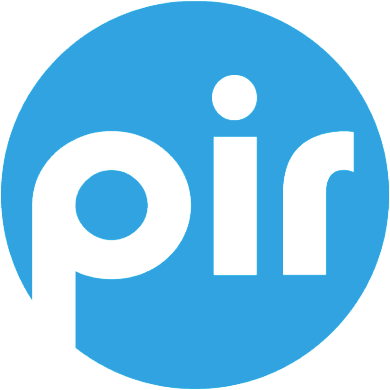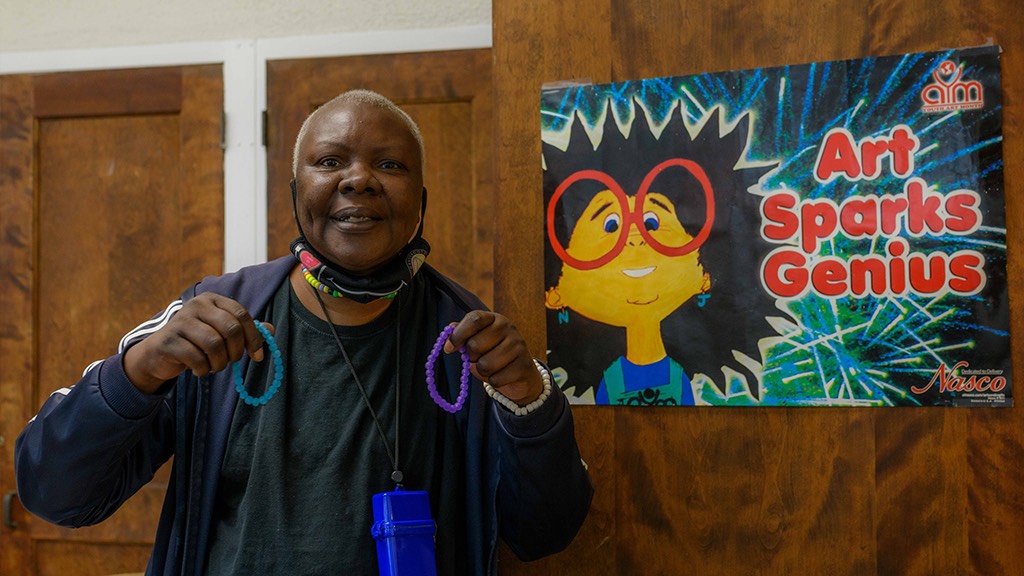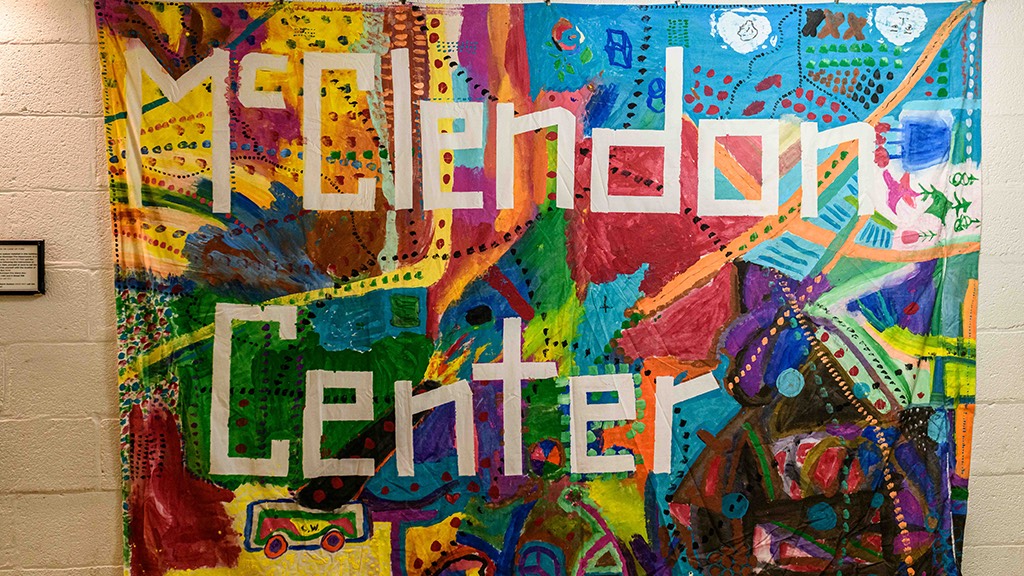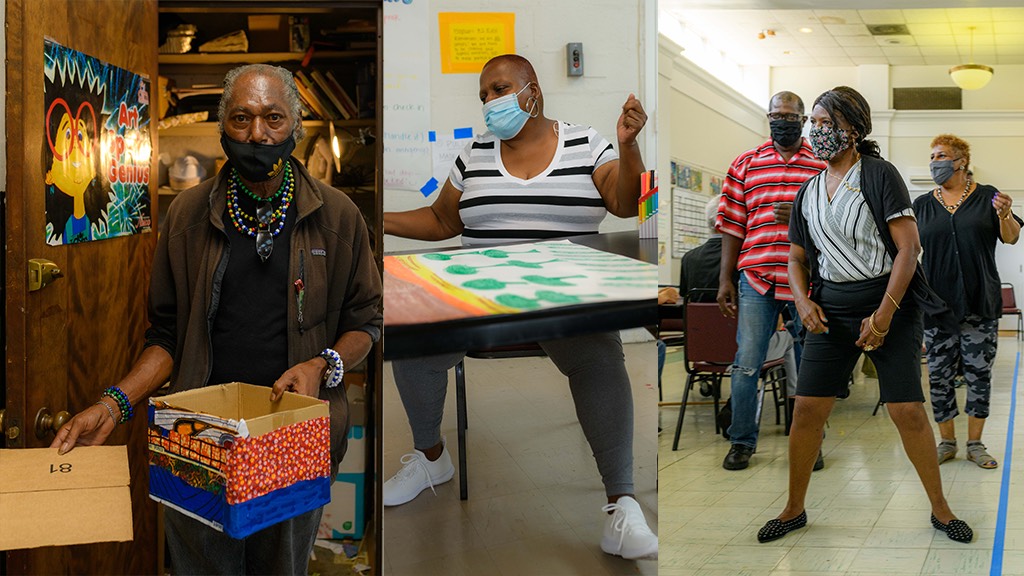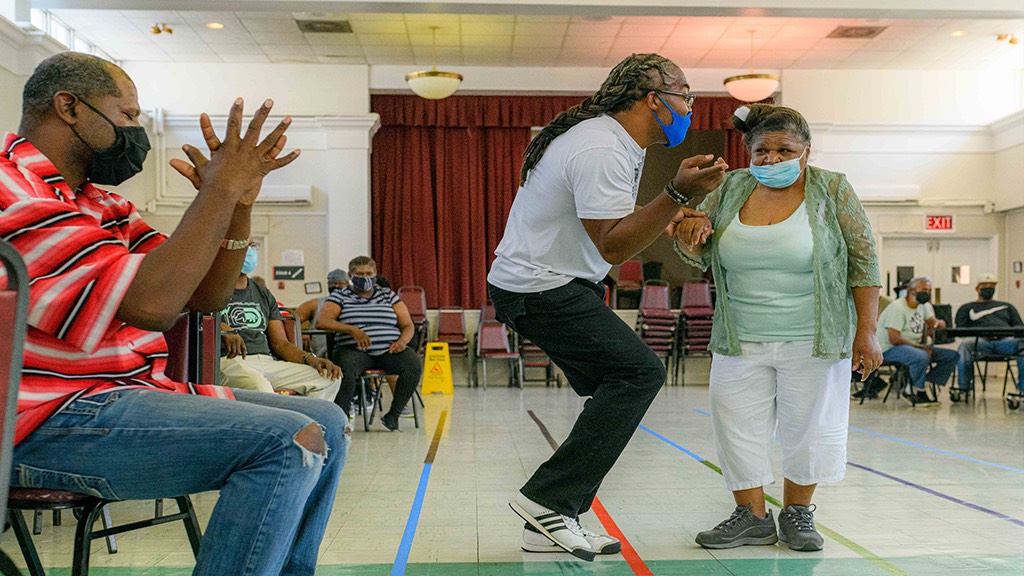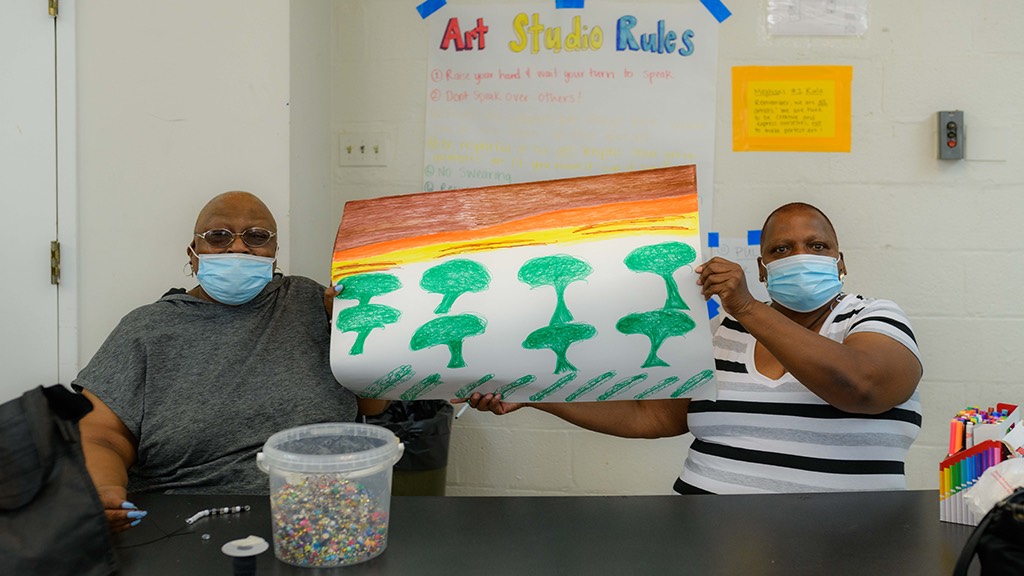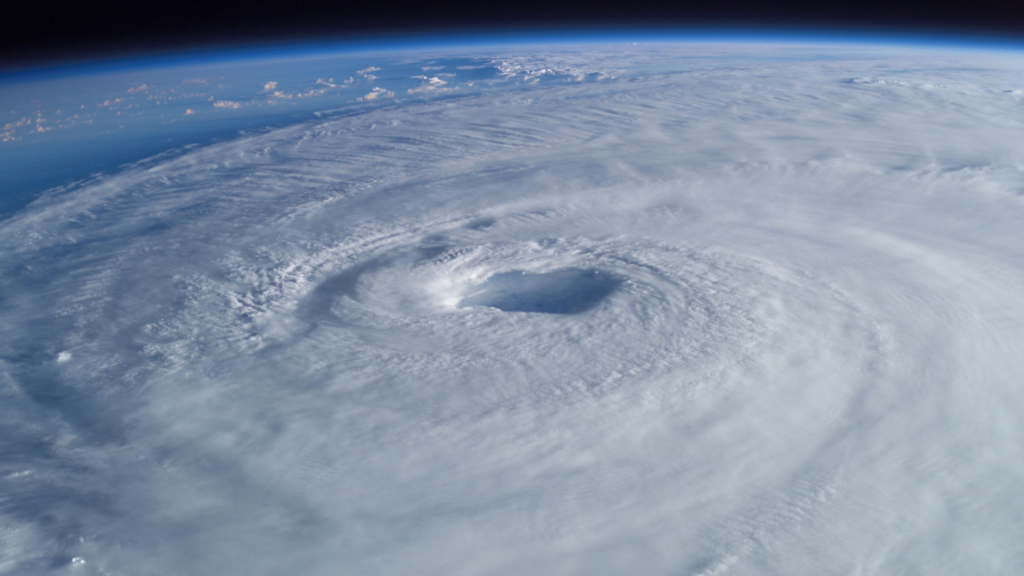Equitable, Essential, Excellent Mental Health Care in the Nation’s Capital
Living with mental illness can be extremely challenging. For clients of McClendonCenter.ORG, circumstances can compound that challenge in a myriad of ways. One-third of the people McClendon Center serves also experience homelessness, joblessness, and other health issues such as drug addiction or diabetes.
“Our clients’ needs vary,” says Sheandinita Dyson, Senior Director and Chief of Staff at McClendon. “And many don’t know how to navigate the system. They may not have access to a computer, or a phone, because they’re often stolen at homeless shelters. They may not have a copy of their birth certificate or social security card, so we help with that. The basics of how to reach out for help are just not things they’re capable of.” This is why McClendon Center provides varied and creative interventions. “We customize solutions to meet the specific needs of our clients – no matter what they might be. That is what we do.”
McClendon Center has been serving DC for more than 40 years. What began in a church basement during the 1980s now includes three locations and serves thousands of clients each year. McClendon Center has expanded their operations to include primary mental and general health care, or what is called “wraparound services”. In addition, its Day Program has been consistently ranked as one of the best in the city. It also offers several creative therapies, including movement, dance, and art therapy.
Day Program clients create beautiful and unique works of art for which McClendon Center pays them and then auctions off at their annual fundraising event, The Art of Transformation. Known for innovation, McClendon Center responded to the pandemic’s shelter-in-place orders by making their day program virtual, providing a critical lifeline for clients who struggle to maintain strong social ties. As it continues to innovate, the Center plans to expand into youth programming and increase services to people with substance use disorders (a population with unmet needs).
Clients usually learn about McClendon Center through referrals by their healthcare partners. McClendon Center staff members proactively identify clients as well, springing into action and providing assistance when they’re released from emergency room visits. The McClendon team will go out and find those who need help, wherever they are. “I heard a story about a client who was discovered living in a cardboard box alongside Georgia Avenue,” says Dyson. “Our team tracked him down to get him the help he needed. We’re tenacious like that.”
While McClendon Center has its core services down to a science, Dyson stresses that it’s the little things that matter most. “Medication, outreach, and psychiatric care are reimbursable by the Department of Health. ‘Extras’ make McClendon Center different and special,” says Dyson. “And those are not covered. So, that’s what we’re out there fundraising for.”
The word “extras” conjures treats or something inessential. And sometimes, the extras are treats. On a client’s birthday or holiday, for example, McClendon Center may bring in cupcakes and gifts to celebrate. It sounds small, but it isn’t. A cupcake makes a person feel cared for and seen, says Dyson: “For some people, those little gifts are the only things they’ll receive on that day.”
For the most part, however, McClendon Center’s “extras” are much more than treats: they’re essential. “Like a warm coat,” says Dyson. “Or Uber fare to a chemotherapy treatment, because that’s not covered. Or a down payment on an apartment or safe housing situation,” she says. Or clean, well-fitting clothes that can change a person’s entire attitude.
“I was told a story about a man who came in [to the Day Program] and he kept wearing the same clothes. So, a staffer jumped in an Uber and took him to Target and bought him a couple new outfits,” says Dyson. “When he returned, he would remark on his clothes. He had a whole new outlook. He was far more outgoing and his personality just really began to shine. He was a little bit ashamed, I think, of his dirty clothes. So that’s just an intangible, invaluable extra that we give.”
For McClendon, their work is about recognizing the humanity of the people they serve. It’s the things that help someone feel like an individual that make the difference. “It’s being noticed, too,” Dyson explains. “Someone noticed that a man’s head was down when he came in and noticed that his clothes were soiled. Much of the credit for that goes to our compassionate staff for truly seeing our clients. It’s so important to be seen. ”
For Washington, DC residents who have lived in poverty and experienced homelessness and trauma, who have not had their mental health or primary healthcare needs met, McClendon becomes a family. And at its essence, that’s what McClendon Center is. “We always say that the staff is a family. Former board members are part of the family. Even as we grow and grow, we want to keep that connection local. We don’t want to lose touch with our community and family.”
You can learn more and support their work here.
